
 |
 The Yummy Spaetzle Bowl : Mouth-watering Spaetzle Recipes by Zoe Moore English | 2022 | ASIN: B0B4JD7JNT | 78 Pages | ePUB/AZW3 (True) | 7.24 MB 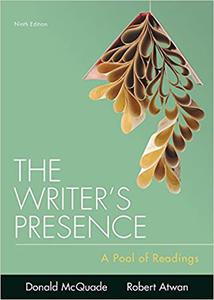 Donald McQuade, "The Writer's Presence: A Pool of Readings" English | ISBN: 1319056601 | 2018 | 752 pages | PDF | 15 MB Paying close attention to voice, tone, and figurative language, the combination of essays in Writer's Presence adds clarity to your own voice and imagination as you grow into becoming a great academic writier. 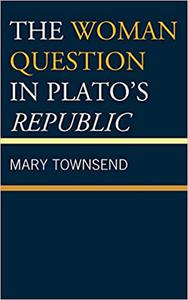 Mary Townsend, "The Woman Question in Plato's Republic" English | ISBN: 1498542697 | 2017 | 248 pages | PDF | 3 MB In this book, Mary Townsend proposes that, contrary to the current scholarship on Plato's Republic, Socrates does not in fact set out to prove the weakness of women. Rather, she argues that close attention to the drama of the Republic reveals that Plato dramatizes the reluctance of men to allow women into the public sphere and offers a deeply aporetic vision of women's nature and political position-a vision full of concern not only for the human community, but for the desires of women themselves. 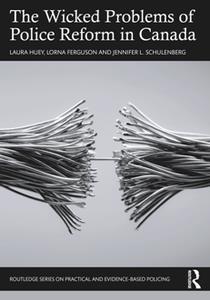 The Wicked Problems of Police Reform in Canada by Laura Huey, Lorna Ferguson English | 2023 | ISBN: 1032281855 | 135 Pages | True PDF | 11.7 MB  Ted Kelly, "The Whiskey Cocktail Book: Classic Whiskey Cocktail Recipes That Everyone Should Try" English | 2022 | ASIN: B0B4VTF3QY, B0B49CQZT5 | EPUB | pages: 60 | 2.7 mb When it comes to your bar cart, your vodkas, tequilas, and rums are likely to see the most cocktail action, while your favorite bottles of Scotch, bourbon, and Irish whiskey are likely to be consumed neat or on the rocks. But why not include the world's most popular brown spirit in the mix? After all, whiskey comes in a wide range of flavors, which means there are plenty of ways to enjoy its distinctive characteristics through cocktails. With these cocktail recipes, you can explore a different aspect of your go-to drink. 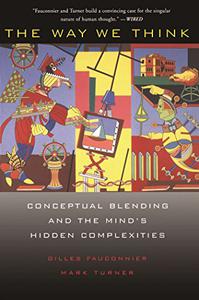 The Way We Think: Conceptual Blending And The Mind's Hidden Complexities by Mark Turner, Gilles Fauconnier English | April 3, 2002 | ISBN: 046508785X, 0465087868 | True EPUB/PDF | 464 pages | 1.7/2.2 MB Until recently, cognitive science focused on such mental functions as problem solving, grammar, and pattern-the functions in which the human mind most closely resembles a computer. But humans are more than computers: we invent new meanings, imagine wildly, and even have ideas that have never existed before. Today the cutting edge of cognitive science addresses precisely these mysterious, creative aspects of the mind.  The Waffen-SS at Arnhem : Rare Photographs From Wartime Archives by Ian Baxter English | 2022 | ISBN: 1399012940 | 114 Pages | True PDF | 89 MB 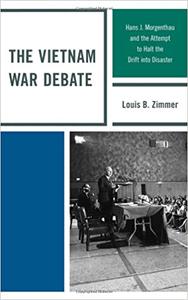 Louis B. Zimmer, "The Vietnam War Debate: Hans J. Morgenthau and the Attempt to Halt the Drift into Disaster" English | ISBN: 0739137697 | 2011 | 430 pages | EPUB, PDF | 895 KB + 1294 KB This book tells the story of how America's national leadership failed the nation and produced the greatest foreign policy disaster in American history to that time. It is foremost, however, the story of a great man who tried to halt his nation's drift into what became an American tragedy. It is also a story that has never before been told. As the war escalated, a variety of critics emerged to challenge the war policy and thus my book is about the national debate in which University of Chicago Professor Hans J. Morgenthau emerged as the chief opponent of the war. Morgenthau argued relentlessly in teach-ins around the country, in public debates and in hundreds of articles that Vietnam was never a threat to America's security and that the war should never have been fought. In the history of the national debate on Vietnam, it is Morgenthau who is the hero of the anti-war movement and the centerpiece of my study. Morgenthau had written the basic text on foreign policy, Politics Among Nations, and had established the field of international relations as an independent discipline of study. His arguments against the war derive from these earliest writings and are elaborated in this book, the principles of which remain valid today. The war ended in 1975 as North Vietnamese troops marched into Saigon after over 58,000 American servicemen and millions of Vietnamese had died in the fighting. The war could have been averted, Morgenthau was ignored, American policy-makers misunderstood the nature of the civil conflict in Vietnam. As Morgenthau told an interviewer in July, 1965, "What I have said recently I have been saying for years, without anybody paying any attention."  The Vegetable Grower's Handbook: Unearth Your Garden's Full Potential English | 2022 | ISBN: 0744048117 | 549 Pages | AZW3 (True) | 29 MB A recent study suggests 38% of British adults use their gardens to grow herbs and vegetables. But with the ever-growing pressure of balancing family life with a career, a lot of today's green-fingered gardeners simply lack time for vegetable growing. 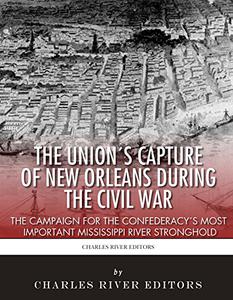 The Union's Capture of New Orleans during the Civil War: The Campaign for the Confederacy's Most Important Mississippi River Stronghold by Charles River Editors English | March 20, 2015 | ISBN: 1508952930 | 51 pages | EPUB | 1.23 Mb *Includes pictures *Includes accounts of the campaign and occupation written by Benjamin Butler and others *Includes online resources and a bibliography for further reading *Includes a table of contents "As the officers and soldiers of the United States have been subject to repeated insults from the women (calling themselves ladies) of New Orleans in return for the most scrupulous non-interference and courtesy on our part, it is ordered that hereafter when any female shall by word, gesture, or movement insult or show contempt for any officer or soldier of the United States she shall be regarded and held liable to be treated as a woman of the town plying her avocation." - Benjamin Butler's General Order No. 28 In 1860, New Orleans was just as unique a city as it is today. It was racially and linguistically diverse, with many French, German, and Spanish speakers, and a population of white, black, and mixed-race inhabitants. Louisiana's population was 47% slave and also had one of the largest numbers of free blacks in the country. Situated near the mouth of the continent's largest river, the Mississippi, it was an international center for trade and industry. New Orleans was the sixth largest city in the country and the largest in any of the states that would end up joining the Confederacy. The volume of trade through its port was second only to New York, and the city's commercial ties with England and Spain and cultural ties with France meant that the European powers would be looking closely at how the city fared in the Civil War, especially after it was occupied by Union forces. The Lincoln administration, fearful of European meddling in the war effort, had to constantly keep European opinion in mind when dealing with the captured city, and the story of New Orleans in the Civil War is one of far-reaching political, racial, and social tensions. Given its importance, it's somewhat surprising in retrospect that the Union managed to capture New Orleans in an easier manner than places like Vicksburg and Atlanta. Admiral David Farragut's naval forces battered their shaky Confederate counterparts and were able to get over a dozen ships upriver past a couple of crucial Confederate forts along the Mississippi. By May 1862, Union forces occupied the city and General Benjamin Butler became its military governor, leaving the last true bastion of Confederate defenses on the Mississippi at Vicksburg. When Grant captured that in July 1863, the Union controlled the entire river and essentially cut the Confederacy in two. In many ways, the occupation of New Orleans for the rest of the war is as intriguing a story as the campaign to capture it. Butler was a political general, and while he would go on to be a politician in the North after the war, he became the most reviled man in the South as a result of his reign in New Orleans. During a governorship that helped earn him the moniker "Beast," Butler became notorious for several acts, including seizing a massive amount of money that had been deposited in the Dutch consul's office. But it was General Order No. 28, which said any woman in town who insulted a member of the Army would be treated like "a "woman of the town plying her avocation" (in other words, she'd be treated as a prostitute) that earned widespread condemnation across the nation, and even abroad in England. Butler was considered so brutal in the South that Confederate president Jefferson Davis personally ordered that he should be executed if he was captured. As it turned out, he never was, and when he was recalled east, he served in commands for the duration of the war before going on to a distinguished political career. The Union's Capture of New Orleans during the Civil War: The Campaign for the Confederacy's Most Important Mississippi River Stronghold chronicles the history of the campaign and the occupation of New Orleans by the Union in 1862. |